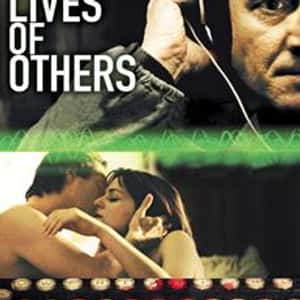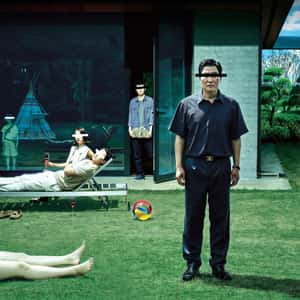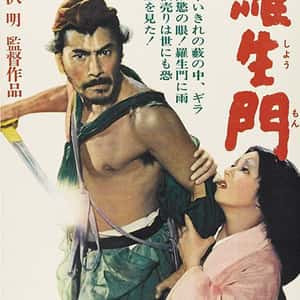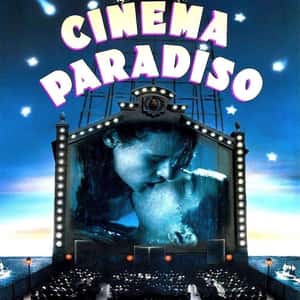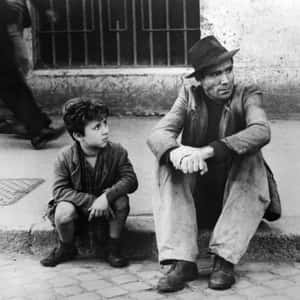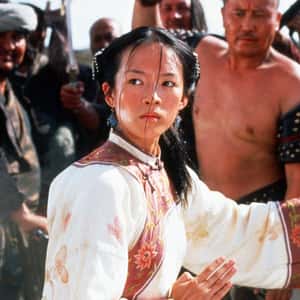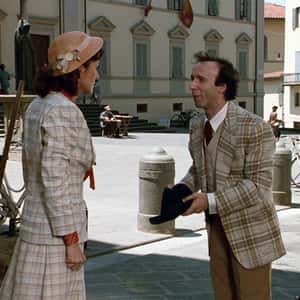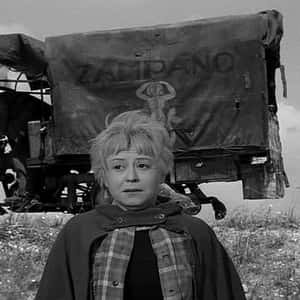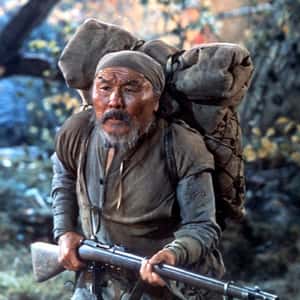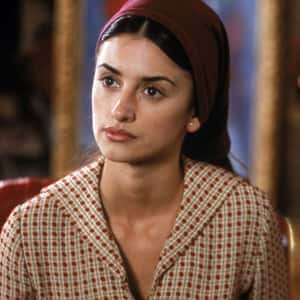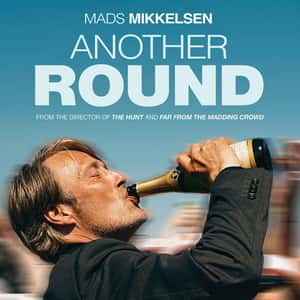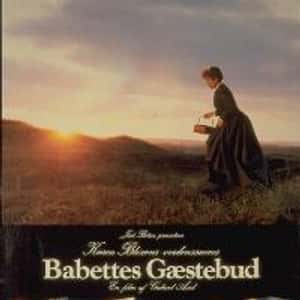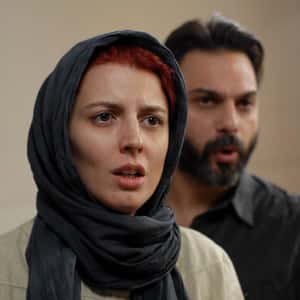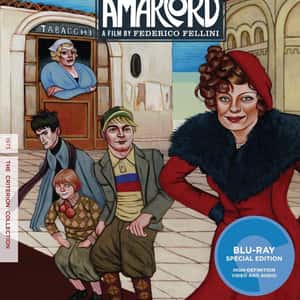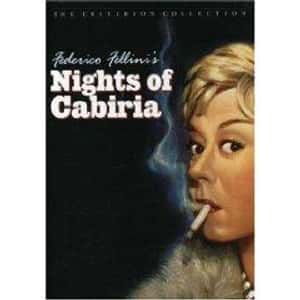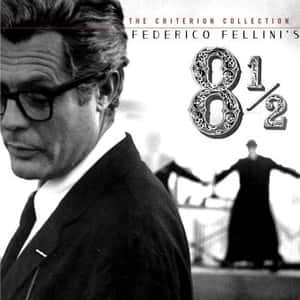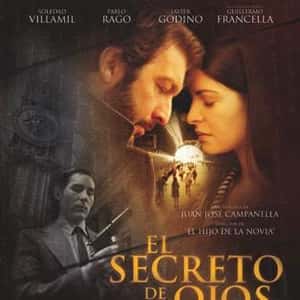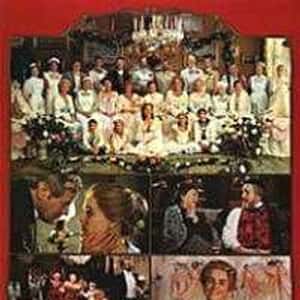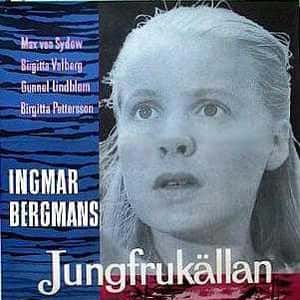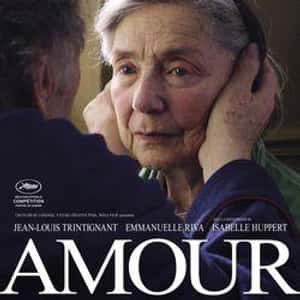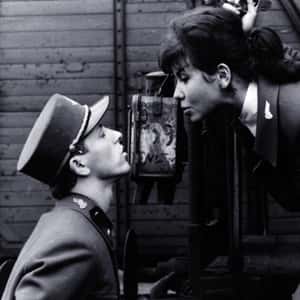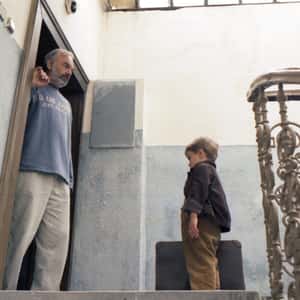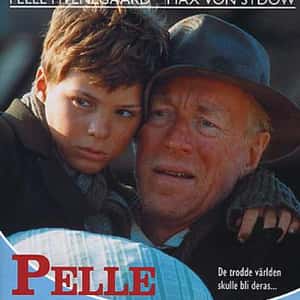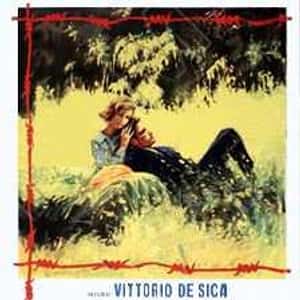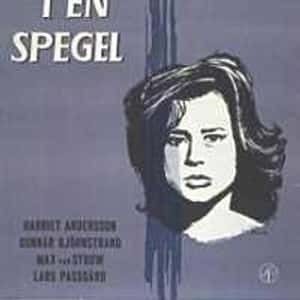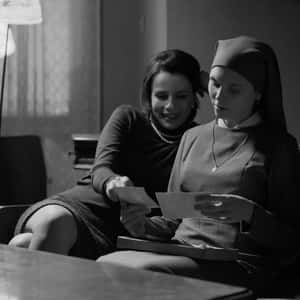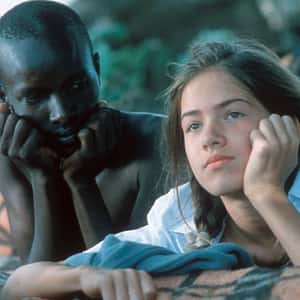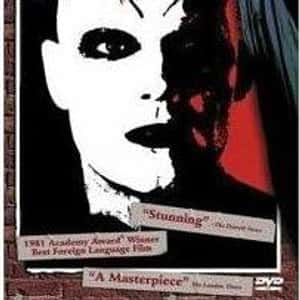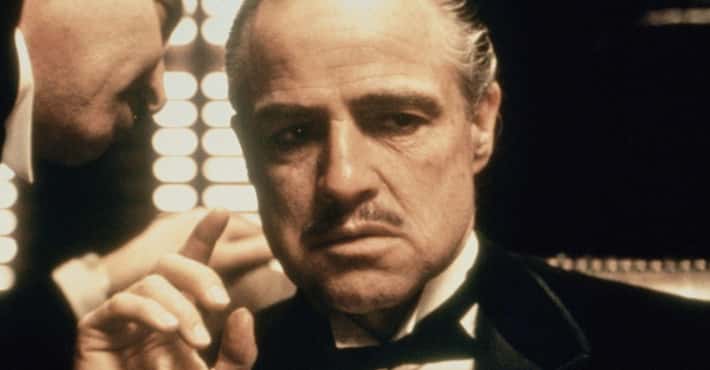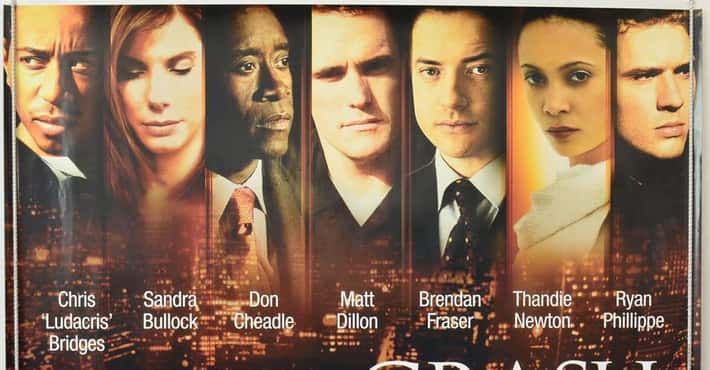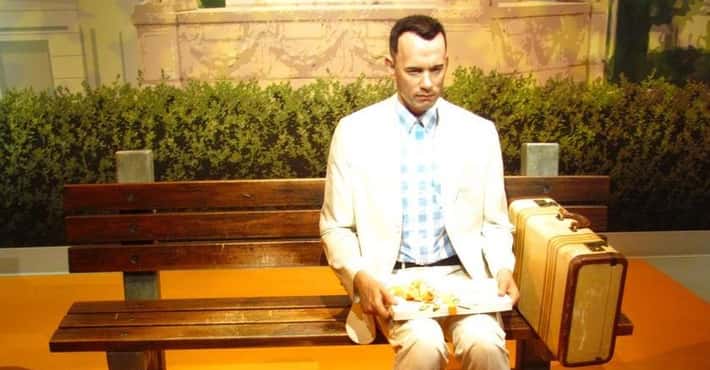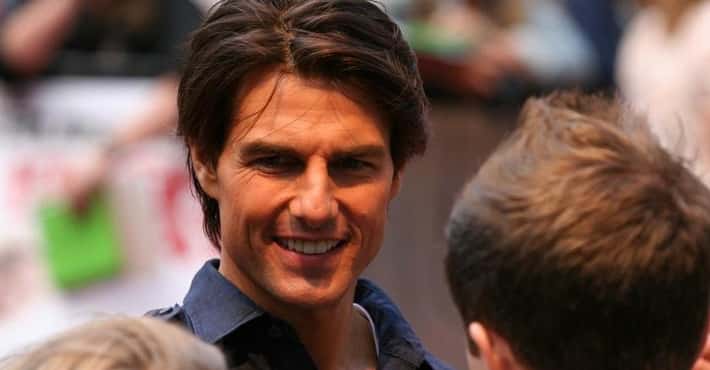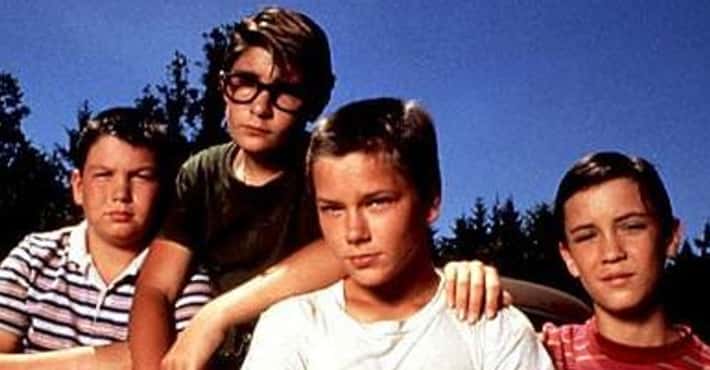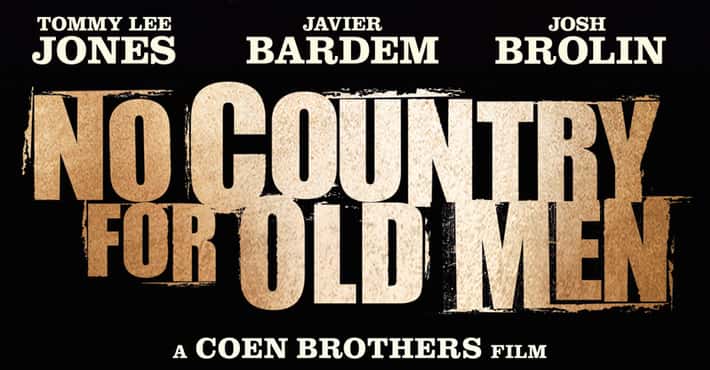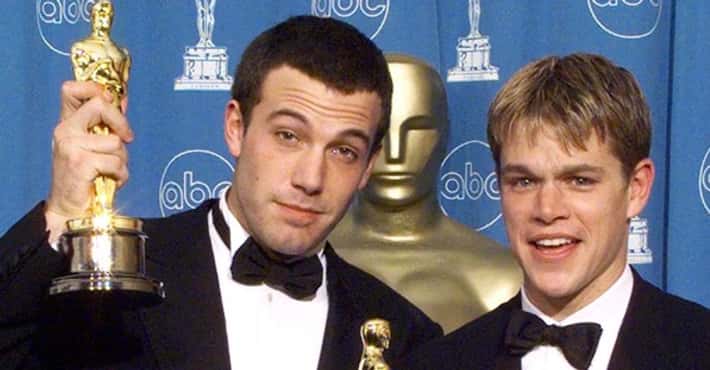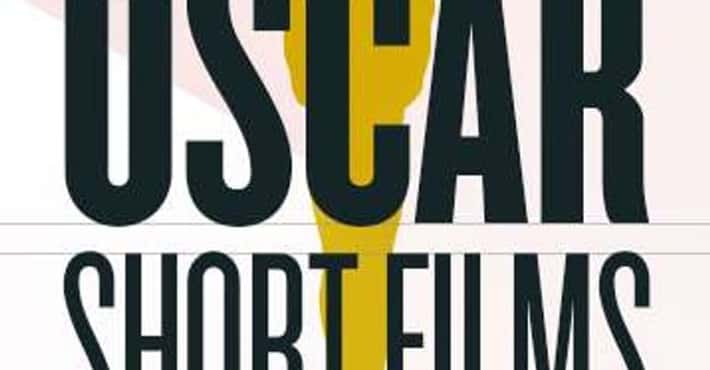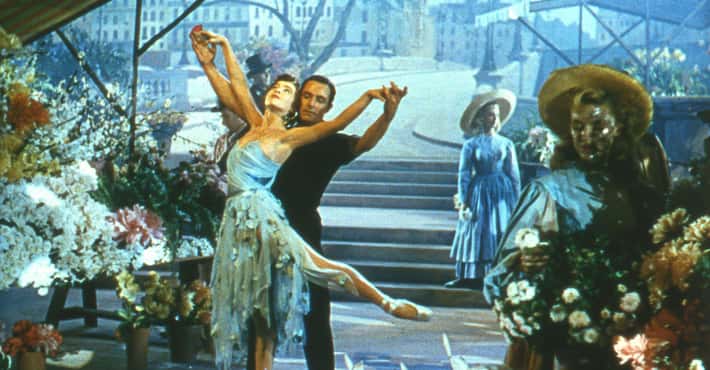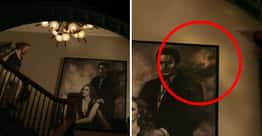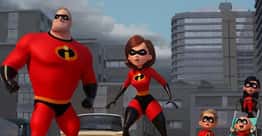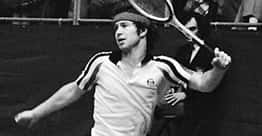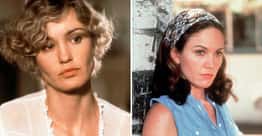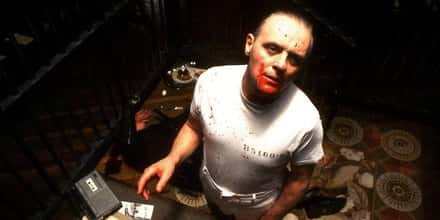The Best Oscar-Winning Foreign Language Films
Ranked By
6.0K votes
738 voters
Voting Rules
Vote up the best of the films that have won a Best Foreign Language Film Oscar
- Ulrich Tukur, Ulrich Mühe, Martina GedeckThe Lives of Others is a 2006 German drama film, marking the feature film debut of filmmaker Florian Henckel von Donnersmarck, about the monitoring of East Berlin by agents of the Stasi, the GDR's secret police. It stars Ulrich Mühe as Stasi Captain Gerd Wiesler, Ulrich Tukur as his superior Anton Grubitz, Sebastian Koch as the playwright Georg Dreyman, and Martina Gedeck as Dreyman's lover, a prominent actress named Christa-Maria Sieland. The film was released in Germany on 23 March 2006. At the same time, the screenplay was published by Suhrkamp Verlag. The Lives of Others won the 2006 Academy Award for Best Foreign Language Film. The film had earlier won seven Deutscher Filmpreis awards—including those for best film, best director, best screenplay, best actor, and best supporting actor—after setting a new record with 11 nominations. It was nominated for Best Foreign Language Film at the 64th Golden Globe Awards. The Lives of Others cost US$2 million and grossed more than US$77 million worldwide as of November 2007.
- Song Kang-ho, Lee Sun-gyun, Jo Yeo-jeongGreed and class discrimination threaten the newly formed symbiotic relationship between the wealthy Park family and the destitute Kim clan.More Parasite
- #107 of 252 onThe 200+ Best Psychological Thrillers Of All Time
- #26 of 96 onThe Very Best Oscar-Winning Movies For Best Picture
- #39 of 40 onThe 40 Best Movie Drinking Games, Ranked By Fans
- Toshiro Mifune, Takashi Shimura, Machiko KyōRashomon is a 1950 Japanese period drama film directed by Akira Kurosawa, working in close collaboration with cinematographer Kazuo Miyagawa. It stars Toshiro Mifune, Machiko Kyō, Masayuki Mori and Takashi Shimura. The film is based on two stories by Ryūnosuke Akutagawa: "Rashomon", which provides the setting, and "In a Grove", which provides the characters and plot. The film is known for a plot device which involves various characters providing alternative, self-serving and contradictory versions of the same incident. The name of the film refers to the enormous city gate of Kyoto. The term Rashomon effect refers to real-world situations in which multiple eye-witness testimonies of an event contain conflicting information. Rashomon marked the entrance of Japanese film onto the world stage. It won several awards, including the Golden Lion at the Venice Film Festival in 1951, and an Academy Honorary Award at the 24th Academy Awards in 1952, and is now considered one of the greatest films ever made.
- Jacques Perrin, Philippe Noiret, Leopoldo TriesteNuovo Cinema Paradiso, internationally released as Cinema Paradiso, is a 1988 Italian drama film written and directed by Giuseppe Tornatore. The film stars Jacques Perrin, Philippe Noiret, Leopoldo Trieste, Marco Leonardi, Agnese Nano and Salvatore Cascio, and was produced by Franco Cristaldi and Giovanna Romagnoli, while the music score was composed by Ennio Morricone along with his son, Andrea.
- Enzo Staiola, Lianella Carell, Lamberto MaggioraniBicycle Thieves, is a 1948 film directed by Vittorio De Sica. The film follows the story of a poor father searching post-World War II Rome for his stolen bicycle, without which he will lose the job which was to be the salvation of his young family. Adapted for the screen by Cesare Zavattini from a novel by Luigi Bartolini, and starring Lamberto Maggiorani as the desperate father and Enzo Staiola as his plucky young son, Bicycle Thieves is one of the masterpieces of Italian neorealism. It received an Academy Honorary Award in 1950 and, just four years after its release, was deemed the greatest film of all time by Sight & Sound magazine's poll of filmmakers and critics; fifty years later the same poll ranked it sixth among greatest-ever films. It is also one of the top ten among the British Film Institute's list of films you should see by the age of 14.More Bicycle Thieves
- #122 of 133 onThe Most Utterly Depressing Movies Ever Made
- #3 of 41 onThe 100+ Best Movies Streaming On The Criterion Channel
- #3 of 425 onThe Greatest Movies in World Cinema History
- Chow Yun-Fat, Michelle Yeoh, Zhang ZiyiCrouching Tiger, Hidden Dragon is an epic martial arts film that takes viewers on a journey through ancient China. The story revolves around two warriors, stoic Li Mu Bai (Chow Yun-Fat) and fiery Yu Shu Lien (Michelle Yeoh), as they cross paths with a mysterious young aristocrat named Jen Yu (Zhang Ziyi). A stolen sword and dangerous secrets set the stage for a grand adventure filled with breathtaking fight scenes and stunning visuals. Directed by Ang Lee and winning four Academy Awards, including Best Foreign Language Film, this movie masterfully blends action, romance, and Eastern philosophy in a captivating tale of honor, love, and destiny.
- #1 of 10 onMichelle Yeoh Martial Arts Roles
- #30 of 80 onThe Best Period Romance Movies
- #79 of 675 onThe Best Movies Roger Ebert Gave Four Stars
- Roberto Benigni, Nicoletta Braschi, Giorgio CantariniIn the heart-warming yet poignant film Life is Beautiful, Guido Orefice (Roberto Benigni) is an Italian Jewish bookshop owner. He employs his fertile imagination to shield his son, Giosué (Giorgio Cantarini), from the horrors of internment in a Nazi concentration camp. The movie, a unique blend of comedy and drama, bagged three Academy Awards. It weaves a tale of resilience and love against the grim backdrop of World War II. Its endearing characters and compelling narrative make it an unforgettable cinematic experience.More Life Is Beautiful
- #22 of 80 onThe Best Period Romance Movies
- #18 of 133 onThe Most Utterly Depressing Movies Ever Made
- #51 of 98 onThe Best Movies Of 1998, Ranked
- Anthony Quinn, Giulietta Masina, Richard BasehartLa Strada is a 1954 Italian drama film directed by Federico Fellini from his own screenplay co-written with Tullio Pinelli and Ennio Flaiano. The film portrays a brutish strongman and the naïve young woman whom he buys from her mother and takes with him on the road; encounters with his rival the Fool end with their destruction. Fellini has called La Strada "a complete catalogue of my entire mythological world, a dangerous representation of my identity that was undertaken with no precedent whatsoever." As a result, the film demanded more time, effort and suffering than any of his other films, before or since. The development process was long and tortuous; it was extremely difficult to secure financial backing; casting proved problematic; injuries, personnel changes and inclement weather disrupted the production schedule more than once; budget shortages constantly plagued the director and his production supervisor, forcing them to take extraordinary measures to keep going. Finally, just before shooting was completed, Fellini suffered a nervous breakdown that necessitated medical treatment in order to complete principal photography.More La Strada
- #64 of 425 onThe Greatest Movies in World Cinema History
- #57 of 60 onThe Best Romance Movies of the '50s
- #35 of 51 onThe 50+ Best Movies of 1954
- Maxim Munzuk, Yuri Solomin, Vladimir Kremena"Dersu Uzala" is epic in form yet intimate in scope. Set in the forests of Eastern Siberia at the turn of the century, it is a portrait of the friendship that grows between an aging hunter and a Russian surveyor. A romantic hymn to nature and the human spirit, it boasts a performance by Maxim Munzuk as the wise and wizened old man of the Taiga.
- Cecilia Roth, Eloy Azorín, Marisa ParedesA Greek saying states that only women who have washed their eyes with tears can see clearly. This saying does not hold true for Manuela. The night a car ran over her son Esteban, Manuela cried until her eyes ran completely dry. Far from seeing clearly, the present and the future become mixed up in darkness. She begins looking for his father who has become a transvestite.More All About My Mother
- #339 of 379 onThe Best Movies Of The 1990s
- #54 of 425 onThe Greatest Movies in World Cinema History
- #102 of 145 onThe Best Foreign Romance Movies, Ranked
- Mads Mikkelsen, Thomas Bo Larsen, Magnus MillangAnother Round (AKA Druk) is a 2020 Danish-Swedish drama film directed by Thomas Vinterberg. Four teachers who struggle with professional and personal woes decide to drink during the day, maintaining a mild buzz, with the aim of becoming more relaxed and creative.More Another Round
- #130 of 156 onThe Best Ensemble Movies Of All Time
- #171 of 425 onThe Greatest Movies in World Cinema History
- #14 of 18 onThe Best Foreign Movies Streaming on Hulu
- Bibi Andersson, Stéphane Audran, Jarl KulleBabette's Feast is a 1987 Danish drama film directed by Gabriel Axel. The film's screenplay was written by Axel based on the story by Isak Dinesen. Produced by Just Betzer, Bo Christensen, and Benni Korzen with funding from the Danish Film Institute, Babette's Feast was the first Danish cinema film of a Blixen story. It was also the first Danish film to win the Academy Award for Best Foreign Language Film. The film premiered in the Un Certain Regard section of the 1987 Cannes Film Festival.More Babette's Feast
- #29 of 41 onThe 100+ Best Movies Streaming On The Criterion Channel
- #75 of 89 onThe Best Movies Of 1987, Ranked
- #11 of 59 onThe Best Movies About Cooking
- Peyman Moaadi, Leila Hatami, Sareh BayatWhen Nader (Payman Maadi), a bank employee, refuses to leave Tehran, his wife, Simin (Leila Hatami) sues for divorce in the hope that she can make a better life for their young daughter abroad. Needing someone to care for his senile father while he's at work, Nader hires Razieh (Sareh Bayat), a married woman whose chador hides her pregnancy. One day, after becoming angry with Razieh, Nader shoves her, and she has a miscarriage, leading Razieh's husband to take Nader to court.
- Ciccio Ingrassia, Magali Noël, Pupella MaggioAmarcord is a 1973 Italian comedy-drama film directed by Federico Fellini, a semi-autobiographical coming-of-age tale about Titta, an adolescent boy growing up among an eccentric cast of characters in the village of Borgo San Giuliano in 1930s Fascist Italy. The film's title is a Romagnol neologism for "I remember." Titta's sentimental education is emblematic of Italy's "lapse of conscience." Fellini skewers Mussolini's ludicrous posturings and those of a Catholic Church that "imprisoned Italians in a perpetual adolescence" by mocking himself and his fellow villagers in comic scenes that underline their incapacity to adopt genuine moral responsibility or outgrow foolish sexual fantasies. The film won the Oscar for Best Foreign Language Film, and was nominated for two Academy Awards: Best Director and Best Writing, Original Screenplay.
- Giulietta Masina, François Perier, Amedeo NazzariThe magnificent Giulietta Masina (Fellini's wife) plays an eternally optimistic Rome streetwalker with a heart of gold and a head of cotton candy in her husband's Oscar-winning masterpiece. This funny, poignant classic inspired the musical "Sweet Charity" and is a must-see for Fellini fans.
- Marcello Mastroianni, Claudia Cardinale, Anouk AiméeTroubled Italian filmmaker Guido Anselmi (Marcello Mastroianni) struggles with creative stasis as he attempts to get a new movie off the ground. Overwhelmed by his work and personal life, the director retreats into his thoughts, which often focus on his loves, both past and present, and frequently wander into fantastical territory. As he tries to sort out his many entanglements, romantic and otherwise, Anselmi finds his production becoming more and more autobiographical.
- Ricardo Darín, Mariano Argento, Soledad VillamilThe Secret in Their Eyes is a 2009 Argentine crime thriller film directed, produced and edited by Juan José Campanella and written by Eduardo Sacheri and Campanella, based on Sacheri's novel La pregunta de sus ojos. The film, a joint production of Argentine and Spanish companies, stars Ricardo Darín and Soledad Villamil. The story unearths the buried romance between a retired judiciary employee and a judge who worked together a quarter century ago. They recount their efforts on an unsolved 1974 rape and murder that is an obsession not only for them, but for the victim's husband and the killer. The double setting frames the period of Argentina's Dirty War, a violent time when criminality often went unpunished. In 2009, it was the recipient of awards in both Hollywood and Spain. The picture won the Oscar for Best Foreign Language Film at the 82nd Academy Awards, and, with 1985's The Official Story, made Argentina the first country in Latin America to win it twice. Three weeks before, it had received the Spanish equivalent with the Goya Award for Best Spanish Language Foreign Film.
- Lena Olin, Peter Stormare, Erland JosephsonFanny and Alexander is a 1982 Swedish drama film written and directed by Ingmar Bergman. The plot focuses on two siblings and their large family in Uppsala, Sweden in the 1900s. It was originally conceived as a four-part TV movie and cut in that version, spanning 312 minutes; a 188-minute cut version was created later for cinematic release, although this version was in fact the one to be released first. The TV version has since been released as a one-part film, and both versions have been shown in theaters throughout the world. The 312-minute cut of the film ranks it among one of the longest cinematic films in history.More Fanny and Alexander
- #397 of 399 onThe Best Movies Of The 1980s, Ranked
- #51 of 67 onThe Best Movies Of 1982
- #309 of 675 onThe Best Movies Roger Ebert Gave Four Stars
- Sergei Bondarchuk, Anastasiya Vertinskaya, Oleg TabakovWar and Peace is a Soviet film adaptation of Leo Tolstoy's novel War and Peace, released in four parts during 1966 and 1967. Sergei Bondarchuk directed the series, co-wrote the script and starred in the leading role of Pierre Bezukhov, alongside Vyacheslav Tikhonov and Ludmila Savelyeva, who depicted Prince Andrei Bolkonsky and Natasha Rostova. The picture was produced by the Mosfilm studios between 1961 and 1967, with considerable support from the authorities. At a cost of 8,291,712 Soviet ruble – equal to 9,213,013 U.S. dollar in 1967 rates, or $67 million in 2011, accounting for ruble inflation – it was the most expensive film ever made in the Soviet Union. Upon its release, it became a success with the audiences, selling approximately 135 million tickets in its native country. War and Peace also won the Grand Prix in the Moscow International Film Festival, the Golden Globe Award for Best Foreign Language Film and the Academy Award for Best Foreign Language Film.
- Max von Sydow, Allan Edwall, Tor IsedalThe Virgin Spring is a 1960 Swedish film directed by Ingmar Bergman. Set in medieval Sweden, it is a revenge tale about a father's merciless response to the rape and murder of his young daughter. The story was adapted by screenwriter Ulla Isaksson from a 13th-century Swedish ballad, "Töres döttrar i Wänge". The film contains a number of themes that question morals, justice and religious beliefs; it was considered controversial when first released due to its infamous rape scene. It won for Best Foreign Language Film at the 1961 Academy Awards and was also the basis for the 1972 exploitation horror film The Last House on the Left.More The Virgin Spring
- #108 of 425 onThe Greatest Movies in World Cinema History
- #30 of 41 onThe Best Movies About Vikings
- #84 of 119 onThe 100+ Best Medieval Movies
- Isabelle Huppert, Jean-Louis Trintignant, Emmanuelle RivaAmour is a 2012 French-language drama film directed by Michael Haneke. The narrative focuses on an elderly couple, Anne and Georges, who are retired music teachers with a daughter who lives abroad when Anne suffers a stroke which paralyses her on the right side of her body.More Amour
- #337 of 675 onThe Best Movies Roger Ebert Gave Four Stars
- #44 of 55 onThe Saddest Romance Movies That Will Make You Cry
- #76 of 95 onThe Best Movies with Only One Word for a Title
- Václav Neckár, Jitka Bendová, Vladimir ValentaIn a small town still occupied by the Germans as World War II's tide is turning toward the Allies, apprentice train-watcher Milos (Václav Neckár) is oblivious to the war. Instead, he is obsessed with having his first sexual experience. Despite the favors of train conductor Masa (Jitka Bendová), Milos has no luck. His quest leads him to a female Resistance fighter who, in passing, recruits him to the cause. As Milos finally finds love, danger draws closer.
- Dig Deeper...Every Oscar Winning Film Ever
- #71 of 79 onThe Best '60s Comedy Movies, Ranked
- #44 of 46 onThe Best 60s War Movies
- Zdenek Sverák, Andrej Chalimon, Libuse SafránkováAs the Cold War winds down, former concert cellist Louka (Zdenek Sverák) barely makes ends meet providing accompaniment at funerals after being blacklisted from his much cushier job with the Prague Philharmonic. For a fee, he marries a Russian woman (Libuse Safránková) so she can become a Czech citizen, but she immediately emigrates to West Germany, sticking the bachelor with her sickly 5-year-old Kolya (Andrej Chalimon) and a host of official questions about the sham marriage.
- Max von Sydow, Sofie Gråbøl, Buster LarsenPelle the Conqueror is a 1987 Danish-Swedish drama film co-written and directed by Bille August that tells the story of two Swedish immigrants to Denmark, a father and son, who try to build a new life for themselves. It stars Pelle Hvenegaard as the young Pelle, with Max von Sydow as his father. Critically acclaimed, it won the Palme d'Or at the 1988 Cannes Film Festival, the 1988 Golden Globe Award for Best Foreign Language Film, and the 1988 Academy Award for Best Foreign Language Film.
- Helmut Berger, Dominique Sanda, Fabio TestiThe Garden of the Finzi-Continis is a 1970 Italian film, directed by Vittorio de Sica. It stars Lino Capolicchio, Dominique Sanda and Helmut Berger. The film is based upon Giorgio Bassani's novel of the same name.
- Dig Deeper...Every Oscar Winning Film Ever
- #280 of 424 onThe Greatest Movies in World Cinema History
- #25 of 29 onThe 25+ Best R-Rated Historical Dramas
- Max von Sydow, Harriet Andersson, Gunnar BjörnstrandThrough a Glass Darkly is a 1961 Swedish film written and directed by Ingmar Bergman, and produced by Allan Ekelund. The film is a three-act "chamber film," in which four family members act as mirrors for each other. It is the first of many Bergman films to be shot on the island of Fårö. Fårö is part of Gotland, the largest island in Sweden. The title is from a Biblical passage. The Swedish title literally means As in a Mirror which is how the passage reads in a 1917 Swedish translation of the Bible. Bergman described Through a Glass Darkly as a “chamber film,” an allusion both to the chamber plays of Strindberg and to chamber music in general. In line with the “chamber” theme, the film takes place in a single 24-hour period, features only four characters and takes place entirely on an island.
- Agata Trzebuchowska, Agata Kulesza, Joanna KuligIn 1962, Anna is about to take vows as a nun when she learns from her only relative that she is Jewish. Both women embark on a journey to discover their family story and where they belong.
- 28
My Uncle
Katsunori Takahashi, Hana Akata, Misaki Aoyagi - Juliane Köhler, Merab Ninidze, Matthias HabichSensing the threat posed by Hitler, Jewish lawyer Walter Redlich (Merab Ninidze) relocates with his wife, Jettel (Juliane Köhler), and daughter, Regina (Lea Kurka), to a farm in Kenya. Regina adapts quickly, forming a bond with Owuor (Sidede Onyulo), the cook, but Jettel is unhappy. Things worsen when the family is made to move again, this time to Nairobi by order of the ruling British authorities. Dispirited, Walter decides to join the Allied army -- and Jettel finds comfort with other men.More Nowhere in Africa
- #664 of 675 onThe Best Movies Roger Ebert Gave Four Stars
- #9 of 15 onThe Best Movies About African Colonialism, Ranked
- #18 of 58 onThe 55+ Best R-Rated Family Drama Movies
- Klaus Maria Brandauer, Krystyna Janda, Ildikó BánságiHendrik Hoefgen (Klaus Maria Brandauer) craves center stage. After years spent slogging it out in provincial theaters, he's grown sufficiently desperate that when the Nazi party effectively offers to make him a star, he doesn't hesitate. Great roles and plenty of praise accumulate quickly, and Hendrik revels in his success. He dreams of ultimately playing Mephisto, and to that end blithely overlooks the profound moral compromises of his situation.More Mephisto
- #452 of 675 onThe Best Movies Roger Ebert Gave Four Stars
- #70 of 72 onPowerful Movies About The Holocaust
- #253 of 425 onThe Greatest Movies in World Cinema History


